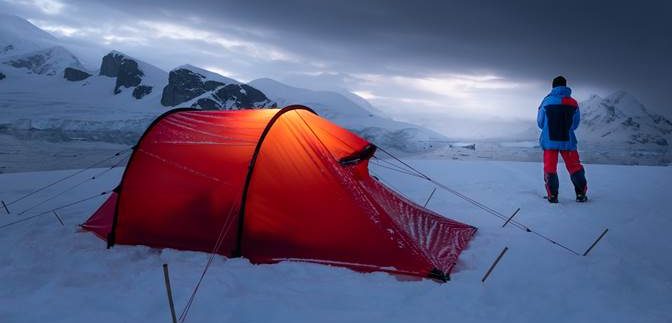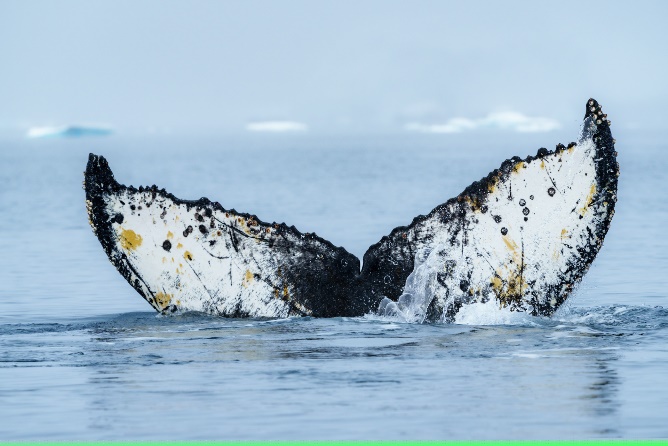Hurtigruten Foundation’s new “Camping in Antarctica” fundraiser drives record donation

[ad_1]
The post Hurtigruten Foundation’s new “Camping in Antarctica” fundraiser drives record donation appeared first on TD (Travel Daily Media) Travel Daily.


Following close review of 82 applications, Hurtigruten Foundation, the non-profit arm of Hurtigruten Group, announces the recipients of its 2023 grants: 14 projects that align with its mission to fight climate change, strengthen local communities, and combat unsustainable mass tourism. This year’s announcement marks a milestone as the Foundation distributes more than one million NOK (approx. 83,000 euros), the largest sum ever distributed in a single round, the result of a new fundraising campaign.
“By paying to camp in Antarctica, our guests played a pivotal role in the Foundation’s record-breaking achievement. In recognition of their contributions, we’re creating more opportunities for guests to participate in scientific research and community engagement,” said Henrik A. Lund, Managing Director of Hurtigruten Foundation.
New ‘camping for climate’ fundraiser
At the onset of the ’22-’23 Antarctica season, Hurtigruten Expeditions pledged to donate 100% of the proceeds from its “Camping in Antarctica, An Amundsen Night” experience to the Foundation. With an exclusive capacity of 30 spaces per voyage, the awe-inspiring chance to camp like an early explorer is the most coveted excursion across Hurtigruten Expeditions’ collection of global itineraries. “We’re putting ‘expedition cruising with a conscience’ into practice,” explained Daniel Skjeldam, CEO, Hurtigruten Group.
The immersive campaign raised 371,482 euros, enabling a record number of guests to give back to the fragile places at the heart of their adventure. “Travelers want to exercise personal responsibility for the planet through activities with real-world effects, such as Beach Clean-ups and Citizen Science projects,” continued Skjeldam. “We’re developing new ways for guests to meaningfully participate in our Foundation’s fight to preserve the nature, wildlife, and communities in which we operate.”

Engagement with local communities and scientific research
Equipped with its largest allocation, the Foundation focused on projects that protect and preserve local communities. Examples include summer camps in remote Greenland, the Cordova Chambre of Commerce’s regenerative tourism initiative, and a watch group that teaches children in the Falkland Islands about conservation. Grant recipient Oxen Expedition Engagement Network, which supports local perspectives and businesses in the Arctic, is working with Hurtigruten Expeditions on community tourism development. “Funding for projects such as Oxen create more opportunities for our travelers to connect with locals during their voyage,” explained Lund.
Several projects, accessible to guests through the expedition line’s Citizen Science program, also received grants. “By providing grants for Citizen Science projects, we’re not only able to support organizations at the forefront of scientific research but also data collection efforts by our guests,” explained Lund. Such examples include Universidad Nacional de Córdoba, where scientists are conducting surveys on benthic species in the West Antarctic Peninsula; Universidad de Los Andes, which has been collecting eDNA samples with Hurtigruten Expeditions in Antarctica for two years; and whale conservation group Happywhale.
“Hurtigruten voyages have proven to be excellent sources of citizen science data; we anticipate this project to use A.I. for marine science communication will enrich the experience of travelers, empower Hurtigruten guides in the field, and prove to deliver rich insight for our whale science work in polar regions,” commented Ted Cheeseman, Co-founder, Happywhale.
Additionally, many grant recipients protect the natural environments that Hurtigruten Norway and Hurtigruten Svalbard call home. The Wild Lab Project, which researches endangered black-legged kittiwakes, volunteer divers’ efforts to conserve marine biodiversity, Tarevoktere (Guardians of Kelp), and a University Centre in Svalbard project studying mercury levels in reindeer are all conserving Nordic coastlines. “We must minimize our footprint everywhere we go, but also want to ensure we can bring future generations of guests to the place where Hurtigruten’s story began,” concluded Lund.
To learn more about this year’s grant recipients, visit the Foundation’s website.

2023 Hurtigruten Foundation grant recipients:
Association of Greenlandic Children
Cordova Chamber of Commerce
Falklands Conservation
Happywhale
Kommuneqarfik Semersooq
Mariuxi Prieto Pino
Oxen Expedition Engagement Network
Skálanes Nature and Heritage Centre
Tarevoktere
The Kon-Tiki Museum, Thor Heyerdahl’s Research Foundation
The University Centre in Svalbard
Universidad de los Andes
Universidad Nacional de Córdoba
Wild Lab Projects
The post Hurtigruten Foundation’s new “Camping in Antarctica” fundraiser drives record donation appeared first on Travel Daily.
[ad_2]
Source link






